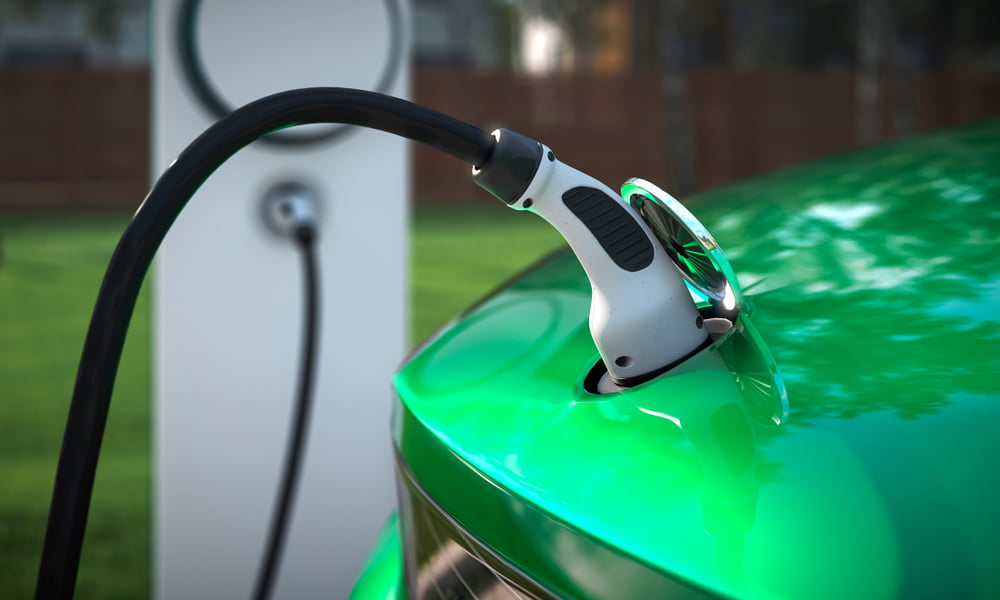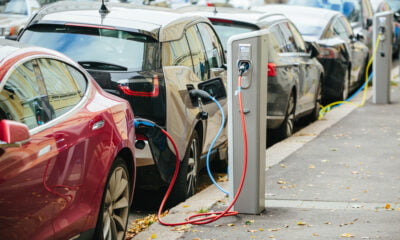

Energy
Why Transitioning Your Company to an EV Fleet Makes Sense?
The rise and rise of electric vehicles (EVs) has not only flipped the script in the consumer automotive market, but is also bringing change to commercial fleets.
The majority of businesses still use gas-guzzling cars and trucks for their transport needs, but it is becoming increasingly obvious that transitioning to EVs instead is the way forward. Here is a look at why making the switch is more attractive today than ever before.
Charging networks are spreading fast
In the past, the main argument against EVs for business or leisure was that there simply wasn’t the infrastructure in place to ensure electric vehicles could reliably access charging points.
Thankfully this is no longer a point that holds any water since massive investment from governments as well as private enterprises has made EV fleet charging a viable option across the country and around the globe.
From street-level chargers in urban areas to charging hubs on major road networks, the risk of an EV being stranded because there is no charging point nearby is vanishingly small. Of course, planning a journey to encompass charging is still necessary, but this is the case with traditional combustion engine vehicles and their refueling needs as well.
Costs are coming down
Another factor that made EV adoption impractical until relatively recently is that the cost of an electric vehicle was higher than the fossil fuel-powered equivalent.
However, a combination of factors has driven down not only the asking price of the vehicles themselves but also the expense of running them over time.
Aside from lower sticker prices and tax breaks for EVs which make them affordable to adopt, you can benefit from lower fuel costs as well as improved reliability in comparison with their polluting forebears.
Electric vehicles require minimal maintenance, have fewer moving parts and are not as susceptible to the ebb and flow of energy prices, especially that of oil. This gives you a more predictable way to calculate fleet management costs, as well as the potential to make savings overall.
Brand reputation will improve
Making the leap to an EV fleet is not just an internally advantageous move for your company, but also one which will alter the way it is perceived in a public sphere.
As clients and customers become more aware of the environmental benefits of moving towards zero-emissions motoring, demonstrating your brand’s affinity for this movement with an all-electric fleet, or even a partially EV-altered one will make a positive impact on its reputation.
Whether you choose to leverage the marketing potential of this switch or not, it will deliver organic brand-building benefits, and in a few short years is likely to be the bare minimum for businesses that do not want to risk the ire of consumers.
This even matters from an employee satisfaction perspective. People will want to work for your firm if it uses EVs, since eco-credentials are a sign of a dynamic and forward-looking business, as well as one which is more broadly aware of its role in the context of a global society.
Tech benefits can improve productivity
The thing to note about EVs is that they offer much more than straightforward electric powertrains and the reduction in emissions that come with them. They are also typically far more technologically advanced in other ways than standard commercial vehicles.
That means you could tap into the latest in autonomous driving, satellite navigation, route planning and driver safety features as part of your fleet’s transition.
So, as you can see there is a laundry list of reasons to take the plunge, and very few downsides if you are already in the process of planning a fleet refresh.


 Environment12 months ago
Environment12 months agoAre Polymer Banknotes: an Eco-Friendly Trend or a Groundswell?

 Features11 months ago
Features11 months agoEco-Friendly Cryptocurrencies: Sustainable Investment Choices

 Features12 months ago
Features12 months agoEco-Friendly Crypto Traders Must Find the Right Exchange

 Energy11 months ago
Energy11 months agoThe Growing Role of Solar Panels in Ireland’s Energy Future





























